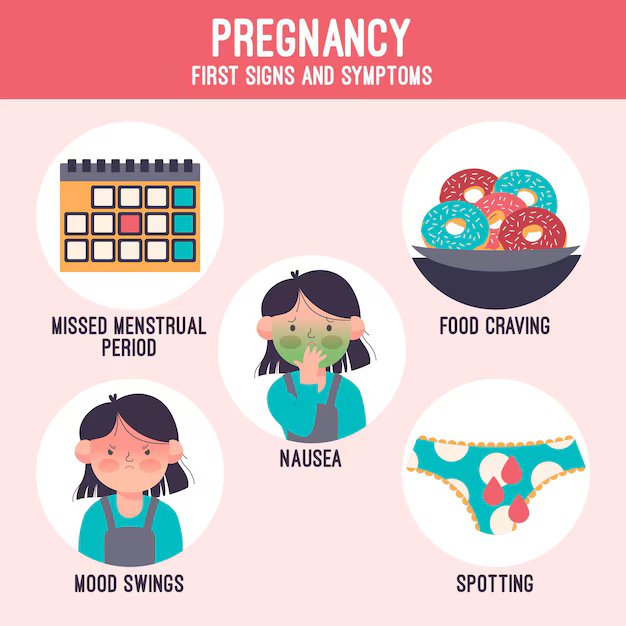Talking to a therapist if needed

The menstrual cycle is more than just a biological process — it’s a journey that often affects every aspect of a woman’s life, including emotional and mental wellbeing. From mood swings and anxiety to feelings of sadness or irritability, these fluctuations are not just “in your head” — they’re real, and they’re rooted in the complex dance of hormones happening within your body.
For many, tracking their menstrual cycle helps to identify patterns in physical symptoms, but it also offers insight into emotional and mental health. One important — and often under-discussed — part of this journey is knowing when to talk to a therapist. Seeking support is a powerful step toward mental wellness, not a sign of weakness.
Why Mental Health Can Be Affected by the Menstrual Cycle
Hormonal shifts during the menstrual cycle — especially during the premenstrual (luteal) and menstrual phases — can significantly impact mood. For some, these changes are mild. But for others, they can lead to:
-
Heightened anxiety or stress
-
Depression or persistent sadness
-
Irritability or anger
-
Overwhelm or fatigue
-
Emotional sensitivity
These symptoms are common but not always manageable alone. In some cases, they may indicate conditions like Premenstrual Dysphoric Disorder (PMDD), which is more intense than regular PMS and can deeply affect day-to-day functioning.
When Is It Time to Talk to a Therapist?
While occasional mood swings are normal, here are signs that it may be helpful to speak to a mental health professional:
-
Your emotional symptoms interfere with daily life or relationships
-
You feel consistently overwhelmed, anxious, or depressed during parts of your cycle
-
You have trouble sleeping, eating, or functioning during your period or premenstrual phase
-
Your emotional changes feel out of control or unlike “your usual self”
-
You feel isolated, alone, or misunderstood
-
You simply need someone to talk to and gain clarity
Talking to a therapist can help you process these experiences, understand patterns, and build tools to cope — not just during your period but throughout the month.
What Can a Therapist Help With?
A therapist can:
-
Help you track emotional patterns related to your menstrual cycle
-
Assist in identifying if symptoms may be related to PMDD, anxiety, or depression
-
Guide you through emotional regulation techniques like mindfulness, journaling, or breathing exercises
-
Support self-esteem and body image issues that may arise during certain cycle phases
-
Offer a non-judgmental space to talk freely and release stress
-
Create a mental wellness plan tailored to your unique cycle and lifestyle
Combining Therapy with Cycle Tracking
Cycle tracking isn’t just for fertility or physical symptoms — it’s a powerful tool for emotional awareness. Logging moods, thoughts, and stress levels alongside physical changes can help you and your therapist:
-
Predict emotional “triggers” or vulnerable days
-
Build proactive strategies to manage tough days
-
Set realistic expectations and self-care goals
-
Empower yourself with knowledge and acceptance
Apps or journals that allow mood tracking, combined with therapy, provide a holistic view of your mental wellness.
Taking the First Step
If you’ve never been to therapy, the idea may feel intimidating. But remember — therapists are trained to help without judgment. You don’t need to have a “big problem” to benefit. Your mental health is just as important as your physical health.
Here’s how to start:
-
Talk to your primary care provider or gynecologist — they can offer referrals.
-
Search for therapists who specialize in women’s mental health or hormone-related mood changes.
-
Start small — even one session can be a step forward.
-
Be honest about your cycle and emotions — it’s your space to be real.
-
Celebrate progress, even if it’s just learning more about yourself.
You Deserve Support
Your menstrual cycle is not something to “get through” in silence. If you find yourself emotionally struggling, talking to a therapist could be a meaningful way to find clarity, strength, and healing. You’re not alone — and you don’t have to navigate it alone either.
Track your cycle. Track your mood. Track your needs. And when needed — talk. You deserve to feel well, whole, and heard.
Related Articles

Common Symptoms in the First Trimester and How to Manage Them
.png)
Packing your hospital bag
.png)
Light resistance workouts
.png)
Cleaning up before and after
.png)
Breathing exercises to relax
.png)
Foods that can reduce inflammation

Implantation Calculator: Estimate When Pregnancy Begins

Things to avoid during pregnancy